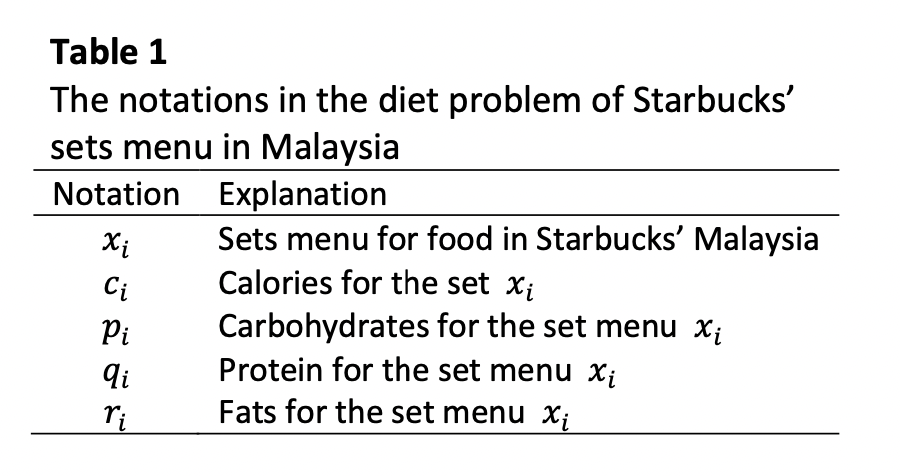The Diet Problem of Food Menu for Starbucks in Malaysia: Linear Programming Problem
DOI:
https://doi.org/10.37934/araset.41.1.191199Keywords:
Linear Programming, Diet Problem, Optimal SolutionAbstract
Nowadays, fast-food production is in high demand in the food industry. There are many fast-food restaurants in the world, such as Starbucks, McDonald’s, Kentucky Fried Chicken (KFC) and others. People would spend their time and money at fast-food restaurants because of their quick serving, convenience, and good taste. Starbucks is also no exception because it has various baked goods and hot breakfast items as part of its cafe menu. This can lead to people overconsuming the food at fast-food restaurants every day. Consequently, they would get health problems such as obesity, heart attack, diabetes and others. In this paper, we determine the most suitable menu from Starbucks for a day to fulfil the daily intake of calories, carbohydrates, protein, and fats for men and women. We will use the linear programming model approach to get the optimal calories, carbohydrates, proteins and fats for men and women. We used the nutritional value chart data from Starbucks’ menu, and this diet problem will be solved using an Excel solver. The results obtained fulfilled the required daily intake for men and women for calories, protein, carbohydrates, and fats from the Starbucks menu.
Downloads





























